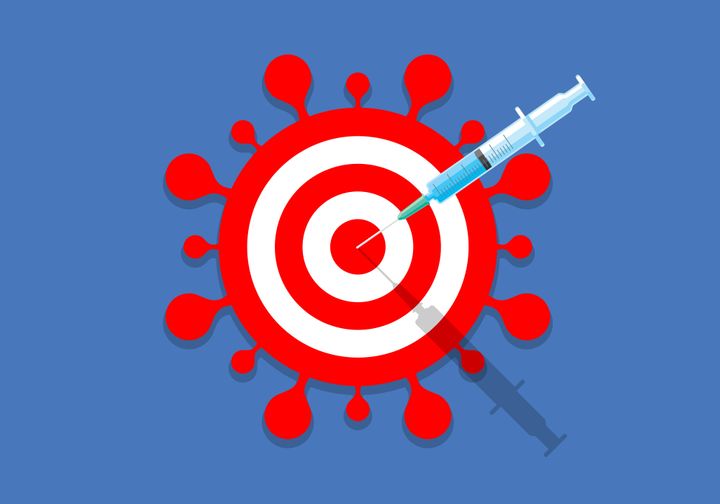News
Does The COVID-19 Vaccine Protect You More Than A Natural Infection?
Vaccines, on the other hand, are believed to induce stronger and longer lasting immunity. They’re also a lot safer than waiting to catch the virus for the first time – or waiting to catch it again, as we don’t know how common reinfections are.
While most presume that the second time around you’d get an easier ride, one 25-year-old man from Nevada was infected with two variants of the virus within a 48-day timeframe. When he caught COVID-19 the second time, his symptoms were more severe and he ended up in hospital needing oxygen support.
“Our assumption has always been that natural immunity to the coronaviruses is rather fragile and short-lived,” says Daniel Altmann, a professor from the Department of Immunology and Inflammation at Imperial College London.
This is because the family of viruses have a number of tricks to “subvert normal immunity,” he explains. “The vaccines can overcome this and induce much stronger, more lasting immunity as they work in a different way. They present a single protein – spike – to the immune system on a really stimulatory platform.”
How Your Body Fights Off COVID-19
When the virus enters the body, it attaches to our cells, hijacks them and then creates copies of itself to invade even more cells. Our immune system kicks in to try and stop this, sending out its frontline defense – the innate immune response – to deal with the intruder.
This is the default response to any virus entering the body. As part of this initial response, inflammatory proteins called interferons are released, which have antiviral functions. The aim is to stop the virus in its tracks – though we don’t actually know how well this first response works in fending off infection.
While the innate immune system is trying (and sometimes failing) to fight off the virus, it also talks to the more specific adaptive immune response. This is your body’s tailor-made solution for dealing with COVID-19, and involves the release of B-cells, which produce antibodies, as well as T-cells, which kill infected cells.
If your body comes into contact with the virus again, it’s thought these B-cells and T-cells can be activated a lot quicker than they were last time to deal with the intruder.
The dosing matters too – at the moment, we need two doses of the vaccine for the best protection. Bryn Boslett, an infectious disease expert leading the vaccination effort at University of California San Francisco, suggests the body’s response to COVID-19 infection would be similar whether you’d had the first dose of the vaccine or had previously been infected with the virus.
But when you get the second dose of the vaccine, you’re further training your immune system, she said in a Q&A on the topic. “You’re strengthening that response from the antibody-producing B cells and you’re also activating T memory cells that stick around for much longer.”
Having both doses means your body is exposed to the spike – that delightful protein – multiple times in a short duration, which means your immune response might be “bigger, better and longer lasting” than getting the infection one time.
We know natural immunity can last around six months – but we don’t know how long vaccine immunity lasts. However, based on research from other vaccines, scientists believe having the shot will provide immunity for well over a year.
“Data are now starting to come through comparing levels of immunity between natural infection and vaccination,” says Altmann. “Levels of immunity after vaccination look higher and are expected to last longer and be less variable between people.”
The advice is that you should have the vaccine whether or not you’ve previously had Covid-19. Altmann says this is important, “not least because many people could never get a PCR test, so can’t be 100% sure if they were truly infected [at the beginning of the pandemic]”.
That said, some people who were previously infected might benefit from one dose of the vaccine rather than multiple. Two preprint studies found a single dose of the vaccine produced high concentrations of antibodies in people recovered from COVID-19. This is what experts refer to as a “prime boost” – your immune system is already primed for another infection, but the vaccine essentially gives it a helping hand to boost your immune system.
Two weeks after a single dose of vaccine, people who had previously tested positive for COVID, or who had existing antibodies from the virus, had antibody concentrations that were as high as (or up to 10 times higher) than the levels seen in uninfected people who had received two doses of the vaccine and 10 times higher than people who had been hospitalized with severe COVID-19.
The studies found vaccine recipients with pre-existing immunity experienced more side effects than those without antibodies, such as fatigue, headache, chills, fever, muscle or joint pain.
Discussing the findings, Eleanor Riley, an expert in immunology and infectious disease at the University of Edinburgh, said: “These data indicate that the vaccines are very effectively boosting the immunity induced by infection.”
This post originally appeared in HuffPost UK.
Experts are still learning about COVID-19. The information in this story is what was known or available as of publication, but guidance can change as scientists discover more about the virus. Please check the Centers for Disease Control and Prevention for the most updated recommendations.
Read more

